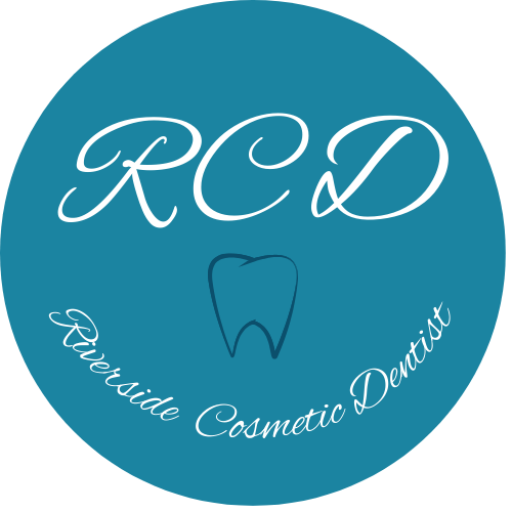A root canal is a dental procedure, with many physical health benefits, used to treat dental infections or inflammation within the pulp of a tooth. Modern root canal treatment is a comfortable and safe method for preserving natural teeth and maintaining oral health. Getting a root canal can result in pain relief, smile restoration, and other benefits. Below are the key benefits of getting a root canal in Riverside, California.
Root Canals Save Your Natural Tooth
One of the most important benefits of a root canal is that it allows you to preserve your natural tooth structure. Rather than extracting the tooth, a root canal removes the diseased or dead pulp tissue and seals the internal chamber to prevent further infection. Keeping your natural teeth supports jawbone integrity, maintains proper alignment, and avoids the need for artificial replacements such as bridges or implants. Retaining your natural tooth also preserves sensory function and aesthetics.
Root Canals Alleviate Tooth Pain and Discomfort
A root canal eliminates the infected nerve tissue, which is the primary source of the pain and discomfort. Tooth pain and discomfort can be the result of a deep tooth pulp infection that can cause significant pain, sensitivity, and pressure. This discomfort often intensifies when chewing or exposing the tooth to temperature changes. Once the root canal procedure is completed and the area is healed, most patients experience substantial relief and a return to normal function without lingering discomfort.
Root Canals Improve an Infected Tooth
During a root canal procedure, the dentist cleans out the infected tooth, disinfects the root canals, and seals the tooth with biocompatible materials to prevent reinfection. When a tooth becomes infected, bacteria infiltrate the pulp and may lead to an abscess, bone loss, or systemic infection if left untreated. This restoration strengthens the tooth internally and allows it to function normally again, often with the addition of a protective crown for further durability.
Root Canals Prevent Further Decay
A root canal halts the progression of dental decay by removing bacteria and decayed tissue from within the tooth. If left untreated, decay can spread to surrounding teeth, gum tissues, and even the jawbone. Sealing the root canal system stops microbial invasion and helps preserve the surrounding oral structures. In this way, a root canal acts not only as a treatment but also as a preventative measure against more extensive dental issues.
Root Canals Improve Chewing Ability
Once a root canal-treated tooth is properly restored, typically with a dental crown, the tooth regains its structural integrity and full function. This allows patients to chew with confidence and without pain or risk of fracturing the tooth. Efficient mastication is essential for proper digestion and nutrition, and root canals ensure that no part of the dental arch is compromised during eating.
Root Canals Protect Other Teeth From Excess Wear and Strain
By restoring function to the affected tooth, a root canal procedure helps balance bite forces, preventing undue strain on neighboring teeth and preserving the overall harmony of the bite. When a damaged or painful tooth is avoided during chewing, patients tend to compensate by using other areas of the mouth more frequently. This can lead to excessive wear, stress, and even damage to otherwise healthy teeth.
Root Canals Restore Your Biting Ability
After successful root canal treatment and restoration, the tooth is structurally reinforced, allowing for normal bite pressure to be restored. Pain and infection can make biting down a challenge, often forcing patients to modify their eating habits. This improves not only chewing efficiency but also overall comfort when speaking and eating, helping patients return to their regular lifestyles without restrictions.
If you’re suffering from tooth pain or have been told you might need a root canal, our experienced team at Riverside Cosmetic Dentist – Dr. Ali Shmara is here to provide expert care in a comfortable, stress-free environment. Preserving your natural teeth is always our priority, and root canal therapy is a reliable, effective way to do just that.
Should you eat after a root canal?
Yes, you can eat after a root canal, but we advise you wait until the local anesthesia has completely worn off to avoid accidentally biting your tongue or cheek. Initially, you should consume soft, non-abrasive foods that do not require excessive chewing. This minimizes stress on the treated tooth and surrounding periodontal structures. Avoiding hot or spicy foods is also recommended during the initial healing period to prevent irritation of the soft tissues and the temporary restoration, if one was placed.
Should you brush your teeth after a root canal?
Absolutely. Maintaining proper oral hygiene is critical after a root canal procedure to prevent secondary infection and support periodontal health. You should continue to brush your teeth at least twice daily using a soft-bristled toothbrush and fluoride toothpaste. Take care to gently clean the area around the treated tooth, especially if a temporary filling is in place, to avoid dislodging it. Once the final restoration, typically a crown, is placed, standard brushing practices can resume fully around the treated area.
Should you floss after a root canal?
Yes, flossing remains an essential component of oral hygiene following root canal therapy. You should floss gently around the treated tooth to remove interproximal plaque and food debris without disrupting any temporary restoration. Interdental cleaning helps prevent inflammation of the gingival tissues and supports the long-term success of the endodontic treatment. If you’re unsure how to floss safely around the treated tooth, consult your dentist for guidance.
Should you be in pain after a root canal?
Some mild discomfort or sensitivity following a root canal is normal and typically subsides within a few days. This post-operative pain is usually due to inflammation of the periapical tissues or minor trauma from dental instruments during canal debridement and obturation. Over-the-counter analgesics, such as ibuprofen or acetaminophen, are generally effective for managing this transient discomfort. Persistent or severe pain, however, may indicate complications such as residual infection, incomplete debridement, or occlusal trauma and should be evaluated by your dentist promptly.
Should you eat hard foods after a root canal?
It is best to avoid hard, crunchy, or sticky foods until the treated tooth has been fully restored with a permanent restoration, such as a dental crown. Hard foods can fracture the tooth structure, especially if only a temporary filling is in place, compromising the outcome of the endodontic treatment. Once the tooth has been structurally reinforced, normal dietary habits can be gradually resumed, though patients should always be mindful of avoiding excessive occlusal forces on restored teeth.

He is always a referral for any of my friends and family wanting good professional work done. This handsome man is the MVP of Dental work, thanks again, enjoy your holiday.
Your office has such a nice atmosphere and your staff are very friendly and helpful.
Halina R












